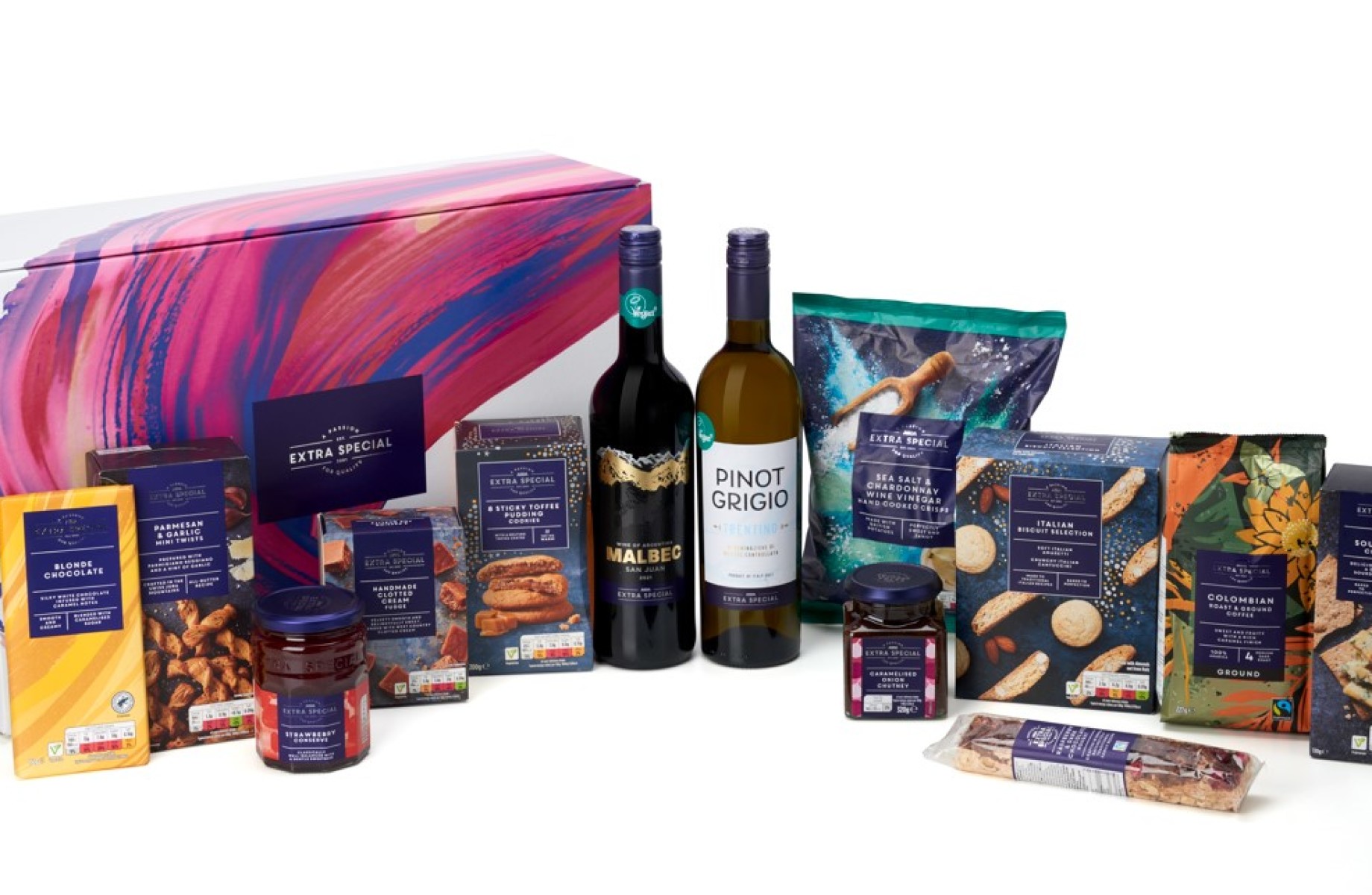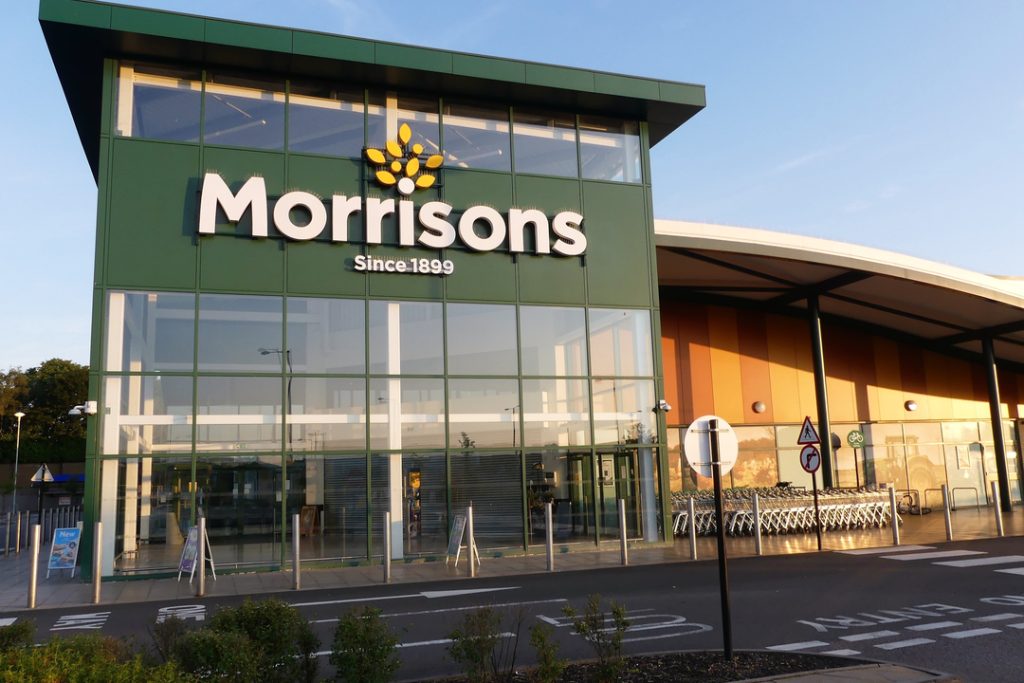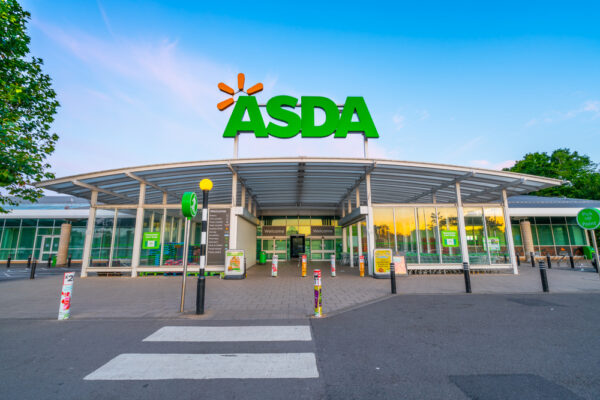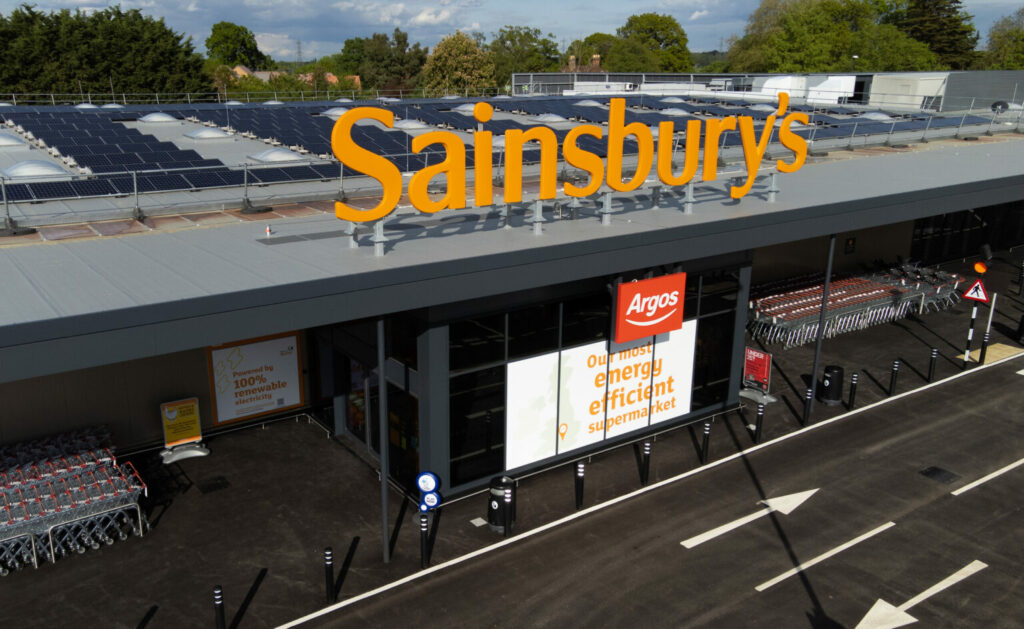Aldi and Lidl were unsurprisingly the big Christmas winners this year, but among the traditional grocers there was a slightly more unexpected retailer sat in the winner’s enclosure: Asda.
The Leeds-based grocer led the pack outside of the discounters with sales up 6.4% over the all-important Christmas period and followed this up with a 6% sales rise in the 12 weeks to 23 January.
This is an about-turn from six months ago as Asda’s market share has risen from 13.7% in the 12 weeks to 10 July, 2022 to 14.2% in the most recent 12 week period monitored by Kantar.
The uplift has confounded critics that feared that the debt burden that the Issa brothers, the billionaire owners of Asda that bought the business alongside private equity firm TDR Capital for £6.8bn in 2021, piled on the firm would hinder its competitiveness.
The accusations looked valid as early last year it was found that Asda’s prices had risen steeply. The price of a basket of 18 staples had jumped 13.6% to £18.08 at Asda, according to research firm Assosia, compared to a small 0.8% rise at rival Tesco.
So, how has Asda got back on track?
READ MORE: What happened in grocery this Christmas?
The price is right
Shore Capital vice chairman Clive Black believes the Issa brothers have made vast improvements at the grocer.
“The new owners have brought higher quality execution, growth opportunities in convenience and retail partnerships. Initial moves with the Just Essentials private label and its loyalty scheme have also landed well,” he says.
However, Black does point out that Asda’s performance of late has been flattered by weak comparatives last year.
Pricing does seem to be a big reason behind Asda’ recent good streak, however.
The Issa brothers have focused on making Asda synonymous with offering great value for money and the relaunch of its value Smart Price line to Just Essentials last year appears to have made a notable difference to brand perception.
IGD senior analyst Patrick Mitchell-Fox says Asda has shored up its traditional reputation as the lowest priced retailer of what was the Big Four at a time that people are searching for value.
“The Just Essentials private label launch is a well-timed initiative, and the Asda Rewards programme promises interesting results,” he says.

Asda describes its Just Essentials range as “fuss-free” and “budget-friendly” The range, which comes with distinctive ‘no frills’ yellow packaging, comprises 293 products, which is 50% more than its Smart Price range.
Paul Stainton, partner at consultancy IPLC, who previously worked for both Aldi and The Co-op, concurs.
He says that the Just Essentials relaunch was ambitious, but Asda has achieved its aims and now has a compelling offer at the low price segment of the market.
Retail Economics senior analyst Nicholas Found says Asda has attracted new shoppers with its value offer.
“Moves across price investment, own-brand product and targeted promotions play to Asda’s value heritage and give cash strapped consumers more reasons to venture out to its stores,” he says.
Extra Special
But it’s not just in value where Asda is thriving.
Asda’s premium Extra Special range had a 14% sales bump over Christmas as customers chose to treat themselves.

Stainton says that Asda is doing a “good job” with its premium private label.
“It is meeting both needs,” he says. “It has been focusing on their higher-end range in the lead up to Christmas, and had a decent selection during the festivities.”
Asda expanded its Extra Special range in the run up to Christmas by introducing a wider range of upmarket products including the Ham on Bone, Pickled Pearl Onions and a plant based alternative Cheese Bake with Sweet Chilli Chutney.
The grocer also introduced new Christmas party food options in December saying the range “enables customers of all budgets to put on a showstopping party spread”.
According to Stainton, this wider choice of higher quality food is helping to differentiate Asda from Aldi and Lidl.
Good availability
Ahead of Christmas there had been concerns that their would be shortages of turkeys after the avian flu led to rationing of eggs across many grocers, including Asda.
Despite this, the grocer made sure it had enough turkeys to go round at Christmas, with Stainton going so far as saying that Asda had strong availability across its seasonal products.
“There was good availability, which was absolutely crucial last year,” he says.
“There were milk shortages and egg shortages because of the suspected bird flu, so people were definitely worried. There were plenty of turkeys around in Asda. They were well positioned for a decent Christmas trading period.”
Loyalty
Asda may have been late to the party when it came to launching a loyalty scheme, however Stainton believes that its Asda Rewards programme, launched last August, has gained some traction.
He describes the programme as “a great initiative at this current time of high inflation and cash strapped customers”.
Shoppers using Asda Rewards earn pounds, not points and build a cashpot by scanning their app when they check out, completing in-app missions – for example, shoppers that spent £25 on school uniforms at George received £5 into their cashpots – and purchasing any of more than 400 ‘Star Products.’
The initiative is proving popular and last month it said that more than three million customers were using the app.
Found agrees and says Asda has done a lot to promote its loyalty scheme, including an advertising campaign in September.
Can Morrisons learn from Asda?
There are many similarities between Asda and Morrisons, which was also taken over by private equity firm CD&R in 2021, which burdened the retailer with much debt.
While Asda was celebrating a 6.4% sales rise over Christmas, Morrisons was the only major retailer aside from Waitrose to post a sales decline over the festive period, according to Kantar.

However, despite the decline, this was actually Morrisons best performance since June 2021.
It followed this up with a 1.9% sales decline in the 12 weeks to 23 January, which Kantar said was its eleventh month of improved performance.
Morrisons prices did rise rapidly. Credit rating agency Moody’s reported last month that it hiked prices more than any other major grocer in 2022, resulting in a large number of customers switching to other supermarkets.
Found points out that Morrisons has made strides to shore up its cash including a sale and lease back of seven warehouses, to free up money for investment.
“But it’s hard to ignore that Moody’s estimated that soaring lending rates could push Morrisons’ annual interest expense from £35m to £335m, on top of an existing debt pile of £6.6bn,” he adds.
Stainton adds that Morrisons was too expensive throughout 2022 and needs to realign its prices so that “it is at least as competitive as Asda”.
Meanwhile, Found believes that Morrisons needs to maintain investment in lower entry prices across key lines and drive own-brand sales.
“The retailer is doing so, but it’s arguably been slower than some rivals and it needs to shout about it in order to get the message across to price conscious consumers,” he tells Retail Gazette.
Black says there was better execution from Morrisons over Christmas but believes fundamentally the grocer needs to refocus on the basics: clean stores, the right assortment, making the most of its fresh food through Market Street and Market Kitchen, and sustaining service, whilst managing costs.
“No rocket science here, just good execution with some sharpening of its pricing offer too,” he says.
If Morrisons is to get back into positive sales territory it could take note of what Asda has done and focus on what customers really want – great prices, products and convenience.
Click here to sign up to Retail Gazette‘s free daily email newsletter

















